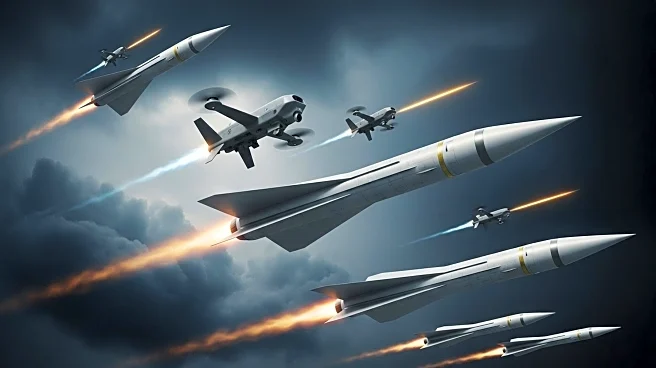What's Happening?
Russia has launched a significant attack on Ukraine, deploying over 600 drones and missiles, according to the Ukrainian air force. This barrage marks one of the largest assaults in recent months, intensifying the ongoing conflict between the two nations. The attack targeted various strategic locations across Ukraine, causing widespread damage and raising concerns about further escalation. The Ukrainian air force is actively responding to the threat, attempting to intercept and neutralize the incoming projectiles. This development follows a series of military engagements between Russia and Ukraine, with tensions remaining high in the region.
Why It's Important?
The escalation of military actions by Russia against Ukraine has significant implications for international relations and regional stability. It poses a threat to European security and could potentially draw in other nations, either through diplomatic pressure or military involvement. The attack may lead to increased sanctions against Russia, affecting its economy and international standing. Additionally, the humanitarian impact on Ukraine is profound, with civilian casualties and infrastructure damage likely to exacerbate the crisis. The global community is closely monitoring the situation, as it could influence geopolitical alliances and defense strategies.
What's Next?
The international response to Russia's latest attack on Ukraine is expected to be swift, with potential diplomatic and economic repercussions. NATO and EU countries may increase their support for Ukraine, providing military aid and humanitarian assistance. The United Nations could convene emergency sessions to address the crisis and seek resolutions to prevent further escalation. Russia's actions may also prompt discussions on strengthening defense capabilities in neighboring countries. The situation remains fluid, with potential for further military engagements and diplomatic negotiations.









